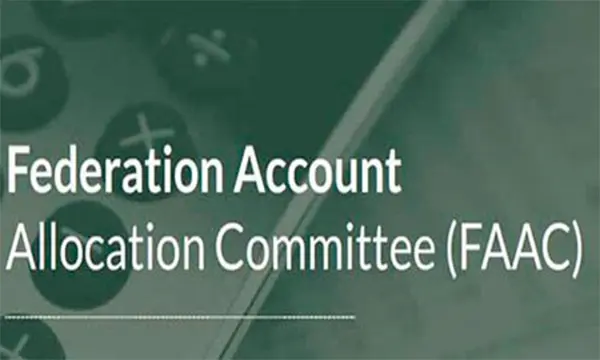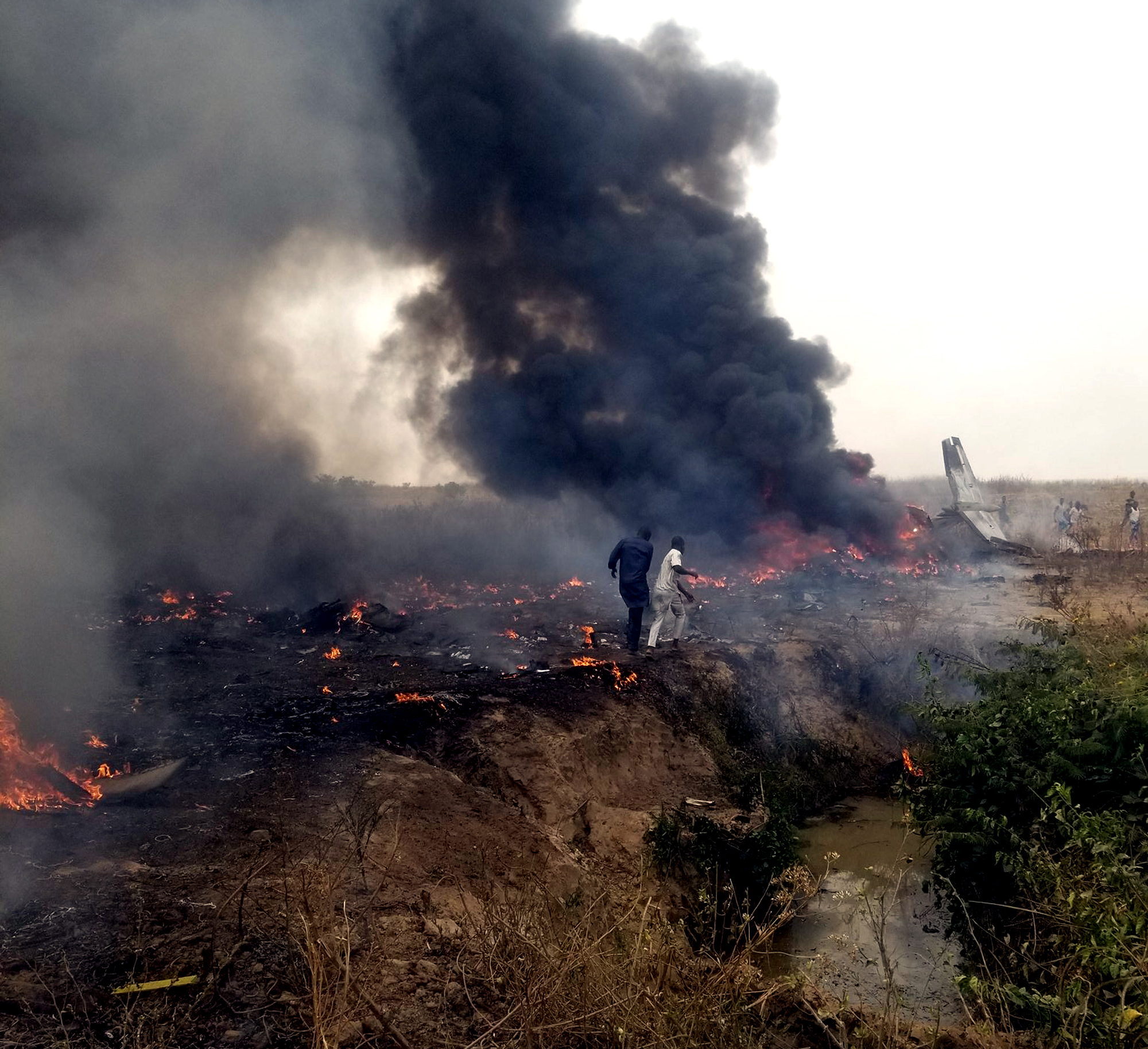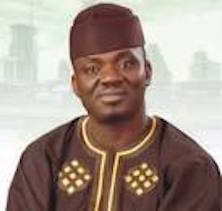COVER
FAAC Allocations Rise by 43% in 2024 – NEITI

By Tony Obiechina, Abuja
The Federation Accounts Allocation Committee (FAAC) has disbursed an unprecedented N15.26 trillion to the Federal, State and Local Governments in 2024.
The disbursements according to a statement by the Nigeria Extractive Industries Transparency Initiative (NEITI), represent a historic high in revenue distribution and a 43% increase compared to previous years.
The FAAC Quarterly Review released in Abuja on Tuesday by NEITI attributed the surge in revenue disbursements to sustained fiscal reform policies of the Federal Government especially the removal of fuel subsidies and foreign adjustment exchange rate policies which has continued to impact positively on oil revenue remittances.
Announcing the report’s release at the NEITI House in Abuja, Dr. Orji Ogbonnaya Orji, Executive Secretary of NEITI, noted that the analyses were conducted against the backdrop of major fiscal reforms that reshaped the revenue landscape, particularly the impact of subsidy removal in mid-2023 on national and subnational finances and the consequences of debt repayment deductions on state allocations.
According to Dr. Orji, the report’s objective is to assess the sustainability of the federal and state governments’ borrowing to fund their projects and programmes, as well as the implications of natural resource dependence, particularly for states benefitting from the 13% derivation revenue from oil, gas, and solid minerals.
He added, “The analysis focused on crude oil revenue derivation states, as solid minerals continue to underperform despite their significant potentials.”
A breakdown of disbursements showed that the Federal Government got N4.95 trillion; State Governments, N5.81 trillion; Local Governments, N3.77 trillion.
Total FAAC Disbursements (Including Derivation Revenue) stood at N15.26 trillion.
The NEITI FAAC Quarterly Review showed that distribution to state governments in 2024 recorded the largest percentage increase of 62% from N3.58 trillion in 2023, followed by local government councils with a 47% increase, while the Federal Government’s share rose by 24% from N3.99 trillion in 2023 to N4.95 trillion in 2024.
The report highlights that total FAAC allocations increased by 66.2% from N9.18 trillion in 2022 to N10.9 trillion in 2023 and N15.26 trillion in 2024, with the most significant growth occurring between 2023 and 2024.
The Quarterly Review attributes the sustained rise in revenue disbursements to the government’s fiscal reforms, specifically the removal of fuel subsidy and exchange rate adjustments, which boosted naira-denominated mineral revenue by over 400%.
While NEITI welcomes and would continue to support the reforms with credible information and data, the Review called for adequate measures to manage and mitigate economic and other social risks associated with reforms in transitional economies like Nigeria.
NEITI outlined such risks to include, Inflationary Pressures, possible rise in Debt Servicing Costs, Fiscal Uncertainties for States Dependent on oil revenues.
NEITI recommended that governments at all levels take innovative actions to mitigate the impact of these economic challenges.
The report also revealed that Lagos State received the highest allocation of N531.1 billion in 2024, followed by Delta (N450.4 billion) and Rivers (N349.9 billion). Conversely, Nasarawa State received the least allocation of N108.3 billion, followed by Ebonyi (N110 billion) and Ekiti (N111.9 billion).
Furthermore, six states—Lagos, Rivers, Bayelsa, Akwa Ibom, Delta, and Kano—each received over N200 billion, collectively accounting for 33% of total allocations to all states, while the six lowest-receiving states—Yobe, Gombe, Kwara, Ekiti, Ebonyi, and Nasarawa—accounted for only 11.5%.
The report revealed a major financial divide, with the top four states—Lagos, Delta, Rivers, and Akwa Ibom—collectively receiving N1.49 trillion, over three times more than the combined total of the bottom four states—Kwara, Ekiti, Ebonyi, and Nasarawa—which received N442.4 billion.
The review highlighted that total debt deductions for states’ foreign debts and other contractual obligations amounted to N800 billion, representing 12.3% of total allocations to the 36 states, including derivation revenue.
Lagos State recorded the highest debt deduction of N164.7 billion, accounting for over 20% of total deductions; Kaduna State followed with N51.2 billion, while Rivers (N38.6 billion) and Bauchi (N37.2 billion) also recorded significant debt deductions.
The report noted that many states with high debt ratios were in the lower half of the FAAC allocation rankings but ranked higher for debt deductions, raising concerns about their debt-to-revenue ratios and overall fiscal health.
In recommendations, NEITI urged the government to sustain policy reform measures to encourage sustainable revenue growth and economic stability with priority attention focussed on job creation, poverty reduction and control of inflation on goods and services.
It also recommended exchange rate stability to mitigate inflationary pressures, adopting conservative estimates for crude oil production and pricing to prevent budget shortfall; reviewing and diversifying minerals revenue dependence while incentivizing investment and strengthening regulatory oversight; enhancing internal revenue generation by all three tiers of government an bolstering savings in the Excess Crude Account (ECA) to create a buffer against revenue volatility.
COVER
Aliko Dangote Steps Down as Chair of Dangote Sugar

Africa’s richest man, Aliko Dangote has stepped down as Chairman of the Board of Dangote Sugar Refinery Plc, marking the end of a two-decade leadership that transformed the company into a dominant force in Nigeria’s sugar industry.According to a corporate disclosure on Wednesday by the company’s Secretary, Temitope Hassan, Dangote’s retirement from the sugar company’s board takes effect from June 16, 2025Africa’s richest man, Aliko Dangote has stepped down as Chairman of the Board of Dangote Sugar Refinery Plc, marking the end of a two-decade leadership that transformed the company into a dominant force in Nigeria’s sugar industry.
Dangote has chaired the board since 2005, overseeing its significant growth and transformation, including major expansion projects and implementing best practices in corporate governance.“In line with the principles of good corporate governance and succession planning, Dangote Sugar Refinery Plc hereby announces the retirement of our esteemed Chairman of the Board of Directors, Alhaji Aliko Dangote, effective June 16, 2025,” the statement said.Under his leadership, the company launched key Backward Integration Projects (BIP) in Adamawa, Taraba, and Nasarawa States to boost local sugar production and reduce Nigeria’s reliance on imports.Following a “rigorous selection and transition process,” the Board has appointed Mr. Arnold Ekpe, an Independent Non-Executive Director and former Group CEO of Ecobank, as the new chairman.We are pleased to announce the appointment of Mr. Arnold Ekpe as the new Chairman of Dangote Sugar Refinery Plc, effective June 16, 2025,” the statement added.Ekpe brings decades of experience in banking and corporate governance, with a strong track record in leading multinational institutions across Africa.The Board thanked Dangote for his exemplary leadership and unwavering commitment to the company’s vision.“We welcome Mr. Ekpe to his new role and look forward to the next chapter in our company’s journey under his leadership. We also express our deep appreciation to Alhaji Aliko Dangote for his years of outstanding service,” the statement stated. (NAN)COVER
Police Arrests 42 Armed Bandits, Remands 10 Herders over Benue Killings

From Attah Ede, Makurdi
The Benue State Police Command said it has arrested 42 local armed bandits and herders across some communities in the state.The Commissioner of Police in the State, Ifeanyi Emenari, who disclosed this during his maiden media briefing held at the police officer mess Makurdi explained that those arrested were suspected to have been involved in the incessant killings going on in the state.
He pointed out that the armed Fulani herdsmen and bandits will face full trial. According to Police Commissioner Emenari, most of the suspects were arrested upon his assumption of duty in the last one month.He maintained that the command had taken the fight to those responsible for the attacks and killings in Benue communities, stressing that tactical teams have already been drafted to flashpoints across communities in the state.”I was posted to Benue State on the 24/04/2025 and assumed duty on the 26 April 2025. Upon assumption of duty, I step up strategic plans to tackle insecurity in the state.”I visited crisis areas such as Ankpali in Apa, Naka in Gwer West, Ayilamo in Logo, Amafu in Katsina-Ala, Ukum, Agatu, Udei, Yogbo in Guma Local Government Areas, and many others. I had discovered that farmlands have no farmers. Therefore, we have deployed our tactical teams to the areas and are now combing the communities in search of the killers.”We have a mandate to ensure that these communities are safe for the people to go back to their homes and engage in farming activities.”And in the last one month we have arrested 42 armed herdsmen and local bandits from these communities. Most of them have been charged to court.”We also have about 10 herdsmen who have been remanded by the courts in the course of their trial.”Apart from those already charged to court, there are others who are still being investigated and they would be charged to court at the end of investigations.””The command also recovered two AK47 rifles and 21 locally made firearms from the suspects. We had taken the fight to cult gangs in the state “that is why we have not witnessed or recorded cult related attacks in the state in the last one month since I assumed office.The kidnap incidents that happen regularly along Makurdi – Lafia federal highway have reduced drastically as we have arrested those perpetrating the acts and are currently in jail.”We have designed a plan to respond to any distress call within 30mns depending on the locations within the state”, Emenari added.The CP assured that the command would ensure that peace and security is restored to every nook and cranny of the state.He appealed to Benue people particularly in the rural communities and urban centres to cooperate with the police in its task of ensuring the security of lives and property in the state.He commended Governor Hyacinth Alia for his support to the Command, maintaining that his desire to ensure peace and security in the state would be achieved.”The entire governor wanted to make sure farmers go back to their farms and people are provided with adequate security to enable them to go on with their lawful business. We are ready to achieve that with the governor support”, he saidSimilarly, the Benue State Governor, Fr. Hyacinth Alia has reiterated that some politicians and “Religious bandits” are responsible for the needless crisis and aiding the killings of innocent people in the State.The Governor stated this while addressing the Pro-Tinibu group who staged a rally at the Government House Roundabout Makurdi, the state capital as part of the activities marking this year’s June 12 Democracy Day celebration.According to the Governor, “The Religious Bandits are the ones fuelling the insecurity situation being experiencing in the state.”They are doing this through their consistent rhetoric of unverified comments and distortion of facts.”There are some religious leaders I call ‘religious bandits’ who are fueling the bad situation we are experiencing here. And how do they support that, by their rhetoric. If you do not have the facts about Benue and Nigeria, shut up. Don’t just say something because you have the holy altar and oil to speak. Speak what you know and what can be verified.”There are some leaders who are fanning the embers of discord that peace should not return to the State.”We are still faced with insecurity as our people are killed unprovoked. We will take out this total menace and carnage of killings. We will not rest on our oars to ensure that total peace returns to Benue especially in the 6 LGAs that are in the frontline of insecurity.”Am confident that with the support of the President, we are going to get rid of insecurity completely in the State. Some traditional and religious leaders are also marching and fighting with us for peace to return to the State. Our people are suffering a lot and for some of us we have taken an oath to defend them and bring back peace”.”The day calls for sober reflection of how far the state and nation has journeyed in 26 years of uninterrupted democratic government, adding “We must pay tribute to the heroes who fought for democracy and sacrificed their lives for the unity of the country”Those heroes some are with us, others have gone to be with the Lord. They went through a lot including imprisonment, sacrificing for the unity of our country. It is not yet over for us. As we celebrate this day, people of conscience should note that what unites us is greater than what divides us. So, we must think positively for the State and the nation. We should have faith and hope for the nation.”Let us have a change of attitude and a different way of thinking. Let us sacrifice for the state and nation some more. Bring solutions to us and stop putting kerosene on fire. Let us know that Nigeria is our country and we can’t have another one.”Let us be our brother’s keeper. To the youths, a new Benue is possible and you are the new Benue. Let us do our best to ensure that Benue State is for prosperity and is secured. I am with the masses because they are with the people”, he stated.COVER
CBEX Remains Banned in Nigeria, SEC Warns Investors

By Tony Obiechina, Abuja
The Securities and Exchange Commission (SEC) is insisting that CBEX (Crypto Bridge Exchange), operating under the corporate identity of ST Technologies International Ltd, also known as Smart Treasure/Super Technology, remains banned in Nigeria as it has not been registered by the Commission.
SEC in a statement yesterday advised the public to refrain from patronising or transacting any investment related business with the CBEX. The notice read: “The attention of the Securities and Exchange Commission has been drawn to media reports indicating that CBEX (Crypto Bridge Exchange), operating under the corporate identity of ST Technologies International Ltd, also known as Smart Treasure/Super Technology, has resumed operations across Nigeria.“According to the reports, CBEX promoters are demanding $200 from their subscribers with balances above $1,000, and $100 from those with less than $1000 balances before withdrawals can be processed”.The Commission stated “unequivocally that neither CBEX nor ST Technologies International Ltd (or Smart Treasure/Super Technology) is registered with the Commission or authorized to offer investment related services to the Nigerian public.“As a matter of fact, enforcement action has already been initiated against CBEX and its promoters following its previous unauthorized investment activities and the Commission is collaborating with relevant Law Enforcement Agencies to properly investigate CBEX/ST Technologies International Ltd and will take appropriate actions in line with the provisions of the Investments and Securities Act 2025.“The Nigerian public is accordingly advised to refrain from patronising or transacting with CBEX /ST Technologies International Ltd (Smart Treasure or Super Technology) as they risk losing their funds”.The SEC advised investors to verify the registration status of Investment platforms via the Commission’s dedicated portal: www.sec.gov.ng/cmos before transacting, adding that it remains committed to protecting investors and maintaining market integrity.

















